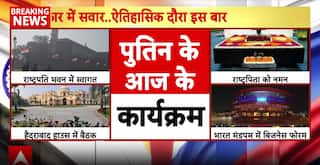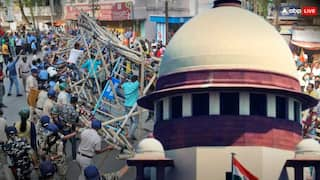Assam: West Karbi Anglong Is No More A 'Disturbed Area', AFSPA Extended In 8 Districts
After a review of the law and order situation in Assam, AFSPA was extended in eight districts and one sub-division for six more months.

The Assam government on Thursday withdrew the declaration of 'Disturbed Area' under the Armed Forces (Special Powers) Act (AFSPA) from West Karbi Anglong district as the situation there has "considerably improved", PTI reported. However, AFSPA was extended in eight districts and one sub-division for six more months.
The order has already come into force from October 1, 2022, a government notification said.
Districts which continue to be "disturbed areas" are Tinsukia, Dibrugarh, Charaideo, Sivasagar, Jorhat, Golaghat, Karbi Anglong and Dima Hasao besides Lakhipur sub-division of Cachar in the Barak Valley.
AFSPA, which gives sweeping powers to the security forces to maintain public order in 'disturbed areas', has been a contentious issue in the north-east states. Civil society members and activists have claimed that AFSPA gives security personnel a free hand to carry out excesses.
"A review of the law and order and security scenario in Assam in the recent past indicates that the situation has considerably improved in West Karbi Anglong district of the state...The Governor of Assam is pleased to withdraw the declaration of 'Disturbed Area' with effect from 01.10.2022 from West Karbi Anglong," the order issued by Home and Political Department Principal Secretary Niraj Verma said.
READ | Centre Extends AFSPA In Districts Of Arunachal Pradesh & Nagaland For Six Months
Earlier this year in May, Union Home Minister Amit Shah said he was confident that the Armed Forces Special Powers Act (AFSPA) would soon be revoked from the entire state of Assam. The Act has already been lifted from 23 districts in Assam.
AFSPA was imposed in Assam in November 1990 and has been extended every six months since then after a review of the situation by the state government.
A renewed and determined call to withdraw the Act gained momentum following an outrage over last year's incident in Mon district of Nagland where 14 people were killed by Army personnel.
On December 4, Army personnel mistook coal mine workers returning home in a van to be insurgents belonging to the Yung Aung faction of the banned outfit NSCN (K) and opened fire, killing six people. Eight others, including an Army man, were killed in subsequent clashes between the forces and villagers.






































